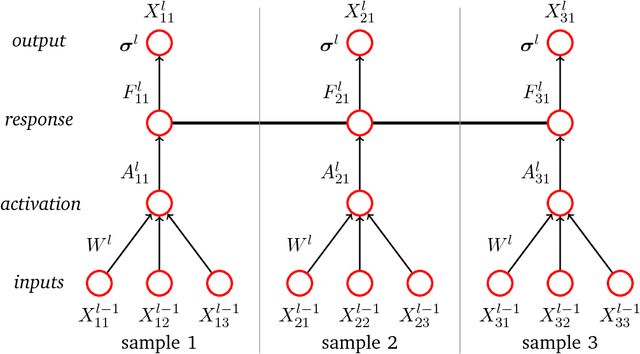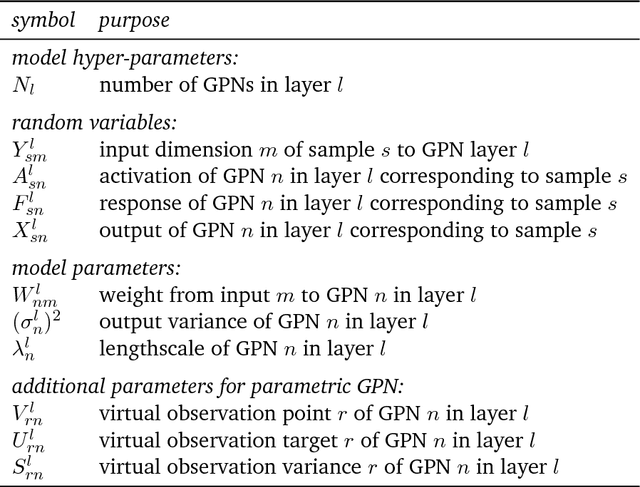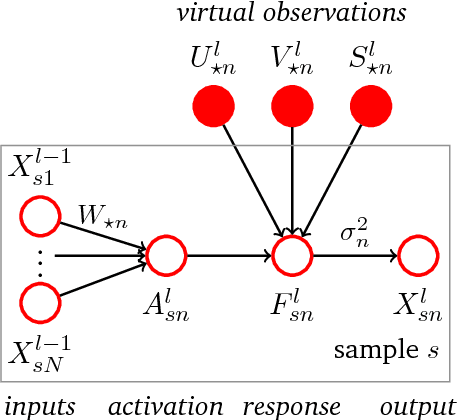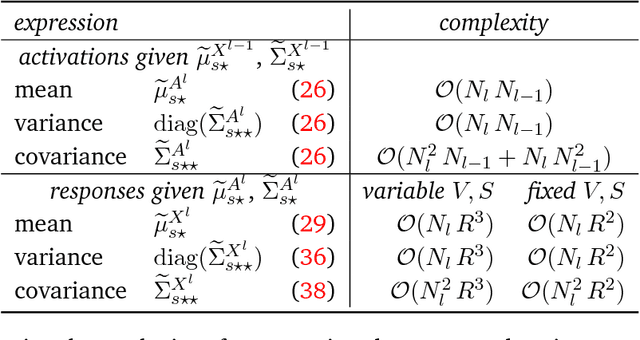Gaussian Process Neurons Learn Stochastic Activation Functions
Paper and Code
Nov 29, 2017



We propose stochastic, non-parametric activation functions that are fully learnable and individual to each neuron. Complexity and the risk of overfitting are controlled by placing a Gaussian process prior over these functions. The result is the Gaussian process neuron, a probabilistic unit that can be used as the basic building block for probabilistic graphical models that resemble the structure of neural networks. The proposed model can intrinsically handle uncertainties in its inputs and self-estimate the confidence of its predictions. Using variational Bayesian inference and the central limit theorem, a fully deterministic loss function is derived, allowing it to be trained as efficiently as a conventional neural network using mini-batch gradient descent. The posterior distribution of activation functions is inferred from the training data alongside the weights of the network. The proposed model favorably compares to deep Gaussian processes, both in model complexity and efficiency of inference. It can be directly applied to recurrent or convolutional network structures, allowing its use in audio and image processing tasks. As an preliminary empirical evaluation we present experiments on regression and classification tasks, in which our model achieves performance comparable to or better than a Dropout regularized neural network with a fixed activation function. Experiments are ongoing and results will be added as they become available.
 Add to Chrome
Add to Chrome Add to Firefox
Add to Firefox Add to Edge
Add to Edge